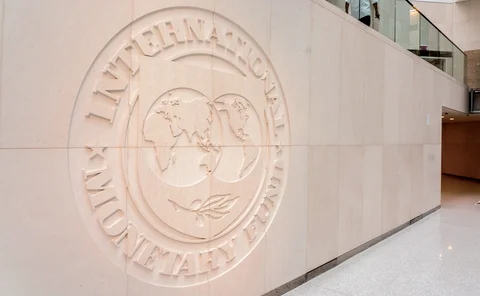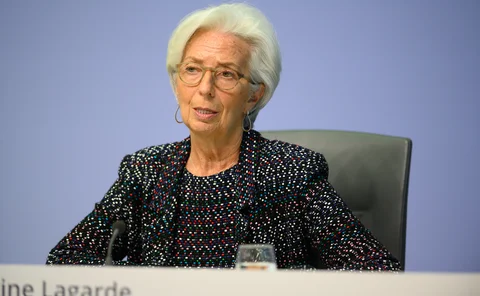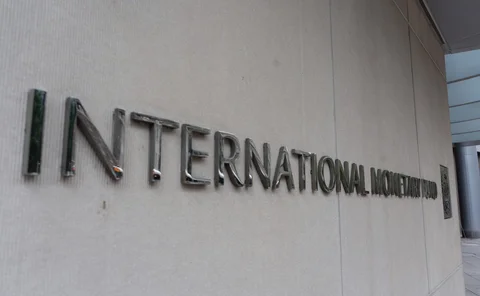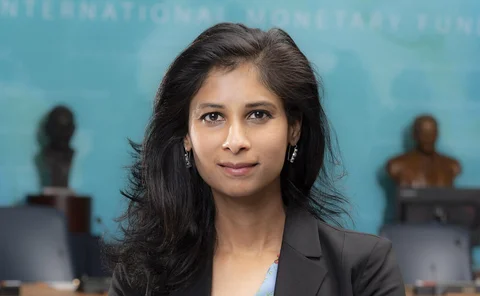Advanced economies
Forecast errors marginally higher for growth than inflation
Data shows contrast between advanced and emerging economies
Income levels have little bearing on economics staffing
European central banks have on average more staff in statistics; non-European institutions have more research economists
Book notes: The great demographic reversal, by Charles Goodhart and Manoj Pradhan
An important book, predicting that powerful demographic forces will upend conventional thinking on macroeconomics and policy
Reserve Benchmarks 2020 report – charting new data frontiers
Perspectives on staffing and salaries, reserve coverage, portfolio construction, benchmarking, use of external parties and risk management
Estimating the cost of a pandemic grant for the world’s poorest economies
The cost of support measures for vulnerable economies is manageable, says Steve Kamin, but political leadership may be lacking
BIS paper explores changing inflation risk factors
Authors highlight “significant non-linearities” among a range of risk factors
Influential Fed economist Thomas Laubach dies
Current and former Fed officials pay tribute to the US central bank’s German influencer, who died on September 2
CBDC projects aim to complement cash – BIS survey
Many central banks are creating “hybrid” CBDCs, according to survey of 32 projects
Covid-19 policy-making and the need for high-speed data
High-frequency data holds the promise of speed and adaptability, but the rush to find alternative economic indicators has the potential to create problems
Emerging markets face L-shaped recession – paper
Researcher works back from growth forecasts to see how Covid shocks might play out
Emerging markets face ‘uphill battle’ against pandemic – IMF staff
EME countries face limited fiscal space and possible solvency crisis, warn researchers
Detail matters when monitoring external imbalances – IMF research
Gross external debt is one of the clearest signs of vulnerability, study finds
How vulnerable are EMEs to renewed Covid-19 turbulence?
Emerging markets face twin pressures from the health crisis and global financial forces, says Steve Kamin
Campos Neto on reforming Brazil’s economy amid Covid-19 distress
The Central Bank of Brazil governor speaks about how Brazil is managing fallout from the coronavirus pandemic, the benefit of large reserves, his plans to deploy emergency asset purchases and why he favours extending the IMF’s SDR funding
Eurozone approaching ECB’s worst-case scenario – Lagarde
Economy likely to shrink by over 10% in 2020, says ECB president
The Belt and Road Initiative 2020 Survey – A more sustainable road to growth?
The third annual Belt and Road Initiative (BRI) survey reveals that central banks view BRI investment as sustainable compared with other forms of external debt, particularly given it is often proportionally less significant. Despite growing global trade…
IMF urges countries to use fiscal firepower against Covid-19
“Do whatever it takes, but make sure to keep the receipts,” says IMF fiscal chief
Financial resilience may be tested further by Covid-19 – IMF
“Sudden stop” in credit markets could feed back to real economy, and requires a “forceful response”
IMF projects deepest recession since Great Depression
Global growth could contract by between -3% and -6% this year, a combined loss of output of $9 trillion for 2020 and 2021
Dutch economy more volatile than European peers – DNB research
Changes to pension system, mortgage markets and budgets could reduce volatility, paper argues
Do low rates spur investment?
Many believe low interest rates spur investment, but there appears to be little hard evidence to support such claims, writes former IMF head Jacques de Larosière
Demographic change could mark end of economic growth – NBER paper
Shrinking populations could cause knowledge and living standards to stagnate, author says
2019: The year in review
The past year was marked by a persistent weakening of the global economy, and some radical financial innovations
Brexit opens opportunity for EU’s capital markets union – research
Future EU-UK relations limited by Brussels’ focus on preserving integrity of internal market






















